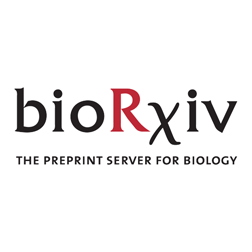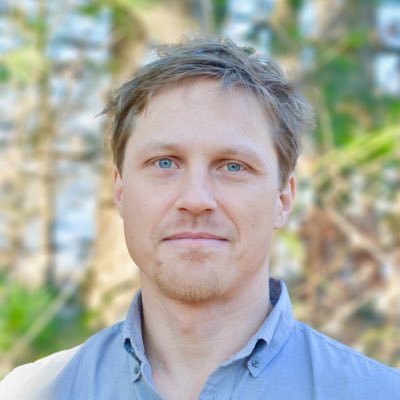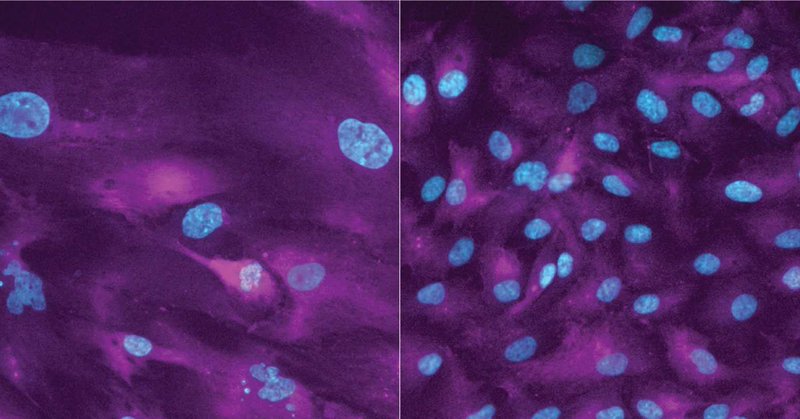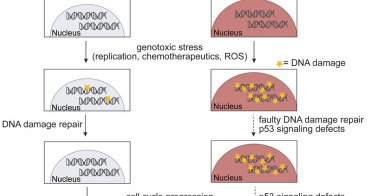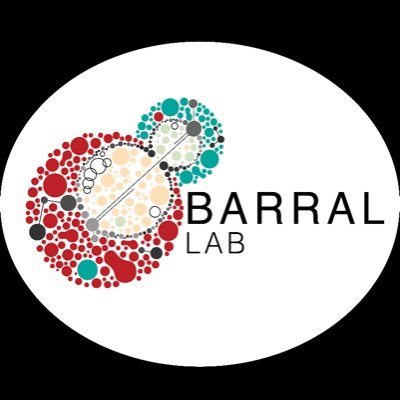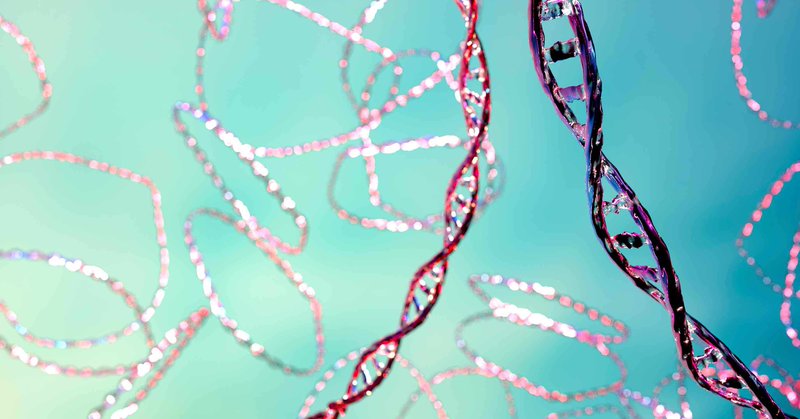
The Jagannathan Lab
@FlyJagannathan
Followers
398
Following
349
Media
5
Statuses
477
Exploring the biology of repetitive satellite DNA.
Zurich, Switzerland
Joined February 2019
Jagannathan Lab news - Part 1 A new paper from the lab jointly led by super students @flyhi_ankita and @Skrutlnize. https://t.co/8CTNhovavU We performed a multi-tissue proteomic screen using our favourite satellite DNA-binding proteins, D1 and Prod, as baits. (1/6)
biorxiv.org
The pericentromeric heterochromatin of eukaryotic chromosomes primarily consists of abundant non-coding repeats known as satellite DNA, which promote accurate chromosome segregation and genome...
1
8
22
Happy to share the first pre-print from the lab focusing on a closed conformation of the mammalian gamma-tubulin ring complex! https://t.co/ClZFneS1rJ
1
24
106
Proud to have out this paper at @PNASNews from @LisaKursel and Jesus on the synaptonemal complex in C. elegans. It includes what is probably the most beautiful genetic data I was ever involved in analyzing - check it out!
pnas.org
Successful chromosome segregation into gametes depends on tightly regulated interactions between the parental chromosomes. During meiosis, chromoso...
3
11
45
My lab's technician posting closes tomorrow. If have an interest in genetics, DNA repeats, germ cells, and how these relate to aging, there is still time to apply! Learn more at
I am hiring a research technician for my new lab at Stony Brook University! The lab is new, but we share space with others, allowing to work directly with the PI (me) while having a great larger community in lab. Please share! https://t.co/vcWE6KhnrM
0
6
8
@sandhya_manohar @MolecularCell @FEBSJournal This beautiful figure created by @sandhya_manohar illustrates nicley how hyperactive cell growth might sensitize cancer cells to CDK inhibitors as suggested by the recent findings the @DeRobertus @Alexis_Barr @_tonyly @AdeSaurin labs and our group
0
1
7
Do you use cell cycle arresting drugs in your research? Were you excited about recent papers on the relationship between cell size and senescence in @MolecularCell? If you answered yes to either of these, check out our review in @FEBSJournal! 🧵(1/5) https://t.co/R8knKpGW50
4
24
123
ETH Zurich researchers are illuminating what can happen when cells exceed their normal size and become senescent. Their new findings could help to optimise cancer treatments. https://t.co/NqO2A3Q5NN
ethz.ch
ETH Zurich researchers are illuminating what can happen when cells exceed their normal size and become senescent. Their new findings could help to optimise cancer treatments.
0
4
15
Lastly, a big shout out to the all the collaborators especially the @ericjoycelab, Randi Isenhart and @SonCNguyen, @Ranganlab, Noor Kotb, @kutay_lab, @federico_uliana, and all the authors for their contributions. Huge thanks to @FlyJagannathan for all the support and mentorship.
0
2
7
Are you curious about the proteins orchestrating nuclear architecture? Whether and how chromatin organization affects gene expression and cell fate? Check out our preprint showcasing recent work in collaboration with the @ericjoycelab and @RanganLab.
biorxiv.org
The association of genomic loci to the nuclear periphery is proposed to facilitate cell-type specific gene repression and influence cell fate decisions. However, the interplay between gene position...
2
27
72
Can cell growth become a competitive disadvantage? We think yes – In the first paper from our lab (🎉) super postdoc @sandhya_manohar finds that excessive cell growth destabilizes the genome - a collaboration with @federico_uliana and @DeRobertus
4
21
79
A nuclear architecture screen in Drosophila identifies Stonewall as a link between chromatin position at the nuclear periphery and germline stem cell fate https://t.co/bR5eOc600V
#bioRxiv
0
2
2
A nuclear architecture screen in Drosophila identifies Stonewall as a link between chromatin position at the nuclear periphery and ... https://t.co/Kb6u7WmFOZ
#biorxiv_cellbio
0
1
2
Genome organization regulates nuclear pore complex formation and promotes differentiation during Drosophila oogenesis https://t.co/mgFYdrs7Wo
#bioRxiv
0
6
11
Ever wonder why cells of the same type tend to have a pretty uniform size? Check out our new paper out in @MolecularCell today to find out why too big can be a bad thing in terms of genome homeostasis and proliferative potential. 🧵 (1/9) https://t.co/OHRq0ls7P9
cell.com
Manohar et al. studied how increased cell size—a hallmark of senescence—impairs long-term proliferation. Excess cell size activates p53-p21 signaling and impairs 53BP1 recruitment to DNA double-str...
12
37
142
I am hiring a research technician for my new lab at Stony Brook University! The lab is new, but we share space with others, allowing to work directly with the PI (me) while having a great larger community in lab. Please share! https://t.co/vcWE6KhnrM
1
28
31
Super excited to share together with @jocelyne_vreede and Peter Bolhuis my first research paper published in Nucleic Acids Research! We have developed a molecular simulation approach for predicting dissociation free energies of protein-DNA complexes:
1
2
21
Our first research paper is now published at nature! 🎉🐭🔬We found that F1 hybrid female mice can have defective chromosome condensation in oocytes, creating a reproductive isolating barrier. Congrats again to our postdoc, Warif El Yakoubi🎊 https://t.co/olybynbVwQ
49
79
396
Our colleagues in the Kroschewski lab just published a new paper where they describe the 'exclusome' - a cytoplasmic container of extrachromosomal circular DNA. Congratulations to all the authors! Here is a layman's version on the ETH website:
ethz.ch
Cell biologists at ETH Zurich describe a new organelle present in mammalian cells that is made of rings of DNA. This container could potentially play a role in autoimmune diseases, and it could help...
1
5
14
🎉🎉🎉🎉🎉 The first research paper from our group is out 🦟🦟🦟🦟 I am soooooooooo HAPPY 😍 https://t.co/4hdIntz5Ll
@imbmainz @Feli_Bas @agata_kalita
nature.com
Nature - A newly identified gene, sex chromosome activation (SOA), is a master regulator of dosage compensation in Anopheles gambiae.
36
37
226
PhD student position available in the @CejkaLab at the @BellinzonaIrb 👉 https://t.co/uifLuVFoJB
#irb #bellinzona #biosplus #phdstudent #phdstudentposition #application #cejka #recombinationmechanisms #DNA
irb.usi.ch
Join the team Before applying for a scientific position at the IRB, you are encouraged to read the following advice: Having an outstanding CV is a very good start but it is not sufficient to be...
0
1
1

